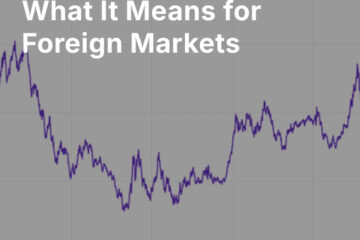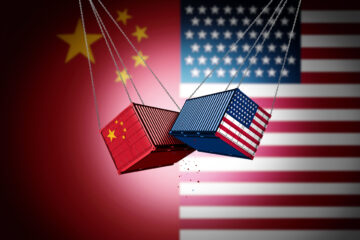Every ten years, the People’s Republic of China has a major celebration on October 1, the anniversary of the country’s founding in 1949. This October 1 will be the 70th anniversary — the first major celebration occurring under China’s President For Life, Xi Jinping.

The Chinese government has been taking steps in the leadup to October 1 to ensure that the celebration goes smoothly. This why Vice Premier Liu requested a tariff delay until after October 1 (a request to which President Trump agreed as a “gesture of goodwill”). It’s also probably why China has taken a relatively soft stance towards the Hong Kong protests, not wanting to risk negative global opinion clouding the celebration. And further, as China’s economy slows, the world is waiting to see what kind of stimulus the government may enact to support economic growth. Perhaps some observers think that they’ll get a clearer view of that stimulus after October 1.
The question is what is likely to happen once the celebrations are successfully concluded without being overshadowed by trade wars, economic problems on the mainland, and disorder in Hong Kong.
We believe that after October 1, the Chinese government’s line on some of these concerns and issues is likely to harden, once the celebration has gone well and any potentially embarrassing conflicts are avoided.
That will mean concentrating attention on Hong Kong, where the mainland government believes that unrest is really being driven primarily by the economically precarious situation of the island’s young citizens, and where housing reform is their long-term answer (as well as measures to address income inequality). The government may also act to prevent further capital outflows.
As far as stimulus goes, in our view, if a big stimulus were being contemplated, the government would have enacted it in the leadup to National Day to create positive public and market sentiment. It is likely that no major stimulus is in the works — and that the government remains focused, for the moment, on deleveraging, and is willing to undergo further pain in GDP deceleration. On September 16, Premier Li said in an interview that as long as there are ample jobs, income growth, and environmental improvement, it is acceptable for China’s GDP to be “a bit lower.” (As we noted last week, it is probably closer to 3% than to the ~6% of official statistics.)
And with October 1 successfully passed, and the risk of an embarrassing confrontation over, China may well feel more free to continue to press for a short-term trade compromise that skirts the harder issues of technology and geopolitics. How well that attitude plays will depend in part on political events within the United States.
Investment implications: If China seems to have gotten friendlier in past weeks — a restrained approach to ongoing protests in Hong Kong, offering an interim trade deal with the U.S. — this may just have been to make sure nothing untoward would happen to spoil President Xi’s first major National Day celebration on October 1. On balance, we would look for China’s positions on Hong Kong and domestic stimulus to harden after October 1, with potentially negative consequences for the Hong Kong and mainland Chinese stock markets. As far as trade issues go, it is unclear whether China’s stance will harden or soften.



